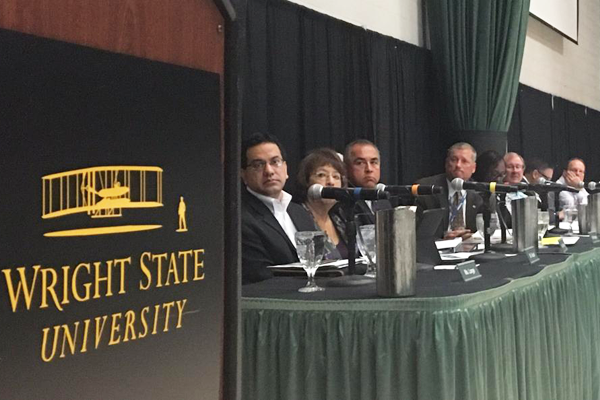
Excerpt from WDTN
Wright State University’s Board of Trustees will have to pay the federal government $1 million for visa fraud offenses on behalf of the university.
Between 2010 and 2013, Wright State reportedly entered into sponsored research contracts with a privately held, Dayton-based software company called Webyoga, Inc.
Per the contracts, Wright State was supposed to employ software engineers, obtain H-1B visas for the employees, and pay their respective salary and benefits as employees of the university.
The H-1B visa program allows U.S. companies to temporarily employ foreign workers for occupations that require highly specialized knowledge and a bachelor’s or higher degree in a specific specialty.
Wright State employed 24 foreign employees who were selected and approved by Webyoga through H-1B visas. The university used their “cap exempt” status to apply for the visas, meaning they have higher limits on the number of H-1B visas they are allowed to obtain.
A signed employment offer letter was submitted, stating the visa employee would be working for the university and under the supervision of university employees.
Wright State failed to mention that the employees would actually be working for Webyoga, even specifying that the visa employees would not be working offsite but would physically be working on the school’s Fairborn campus.
Rather than develop the software programs named in the contracts, the visa employees worked as consultants on behalf of Webyoga in cities such as Atlanta, Orlando, and New York City.
Wright State then invoiced Webyoga for more than $1.8 million for the fees associated with the employees’ visas, salaries, benefits, and administrative costs.
Between 2010 and 2015, Wright State entered into similar agreements with other companies wherein it would apply for H-1B visas for individuals, knowing they were going to work on a routine basis for another company that would then reimburse the school.
“Visa fraud in higher education undermines the integrity of our immigration laws,” said U.S. Attorney Benjamin Glassman. “Today’s agreement ensures that will not happen again at Wright State. It also serves as a warning to other institutions that participate in the H-1B visa program that fraud in the administration of the program leads to consequences.”
Wright State acknowledged that the placement of H-1B visa employees with other companies and in locations other than Fairborn violated the terms of their visa applications. As a result, the companies who should have been subjected to H-1B visa limitations were able to use H-1B employees through their contracts with Wright State.
The University will pay the federal government $1 million in three installments. The first is due within 60 days and the second is due within 12 months. The final installment must be paid within 12 months of the second payment.

